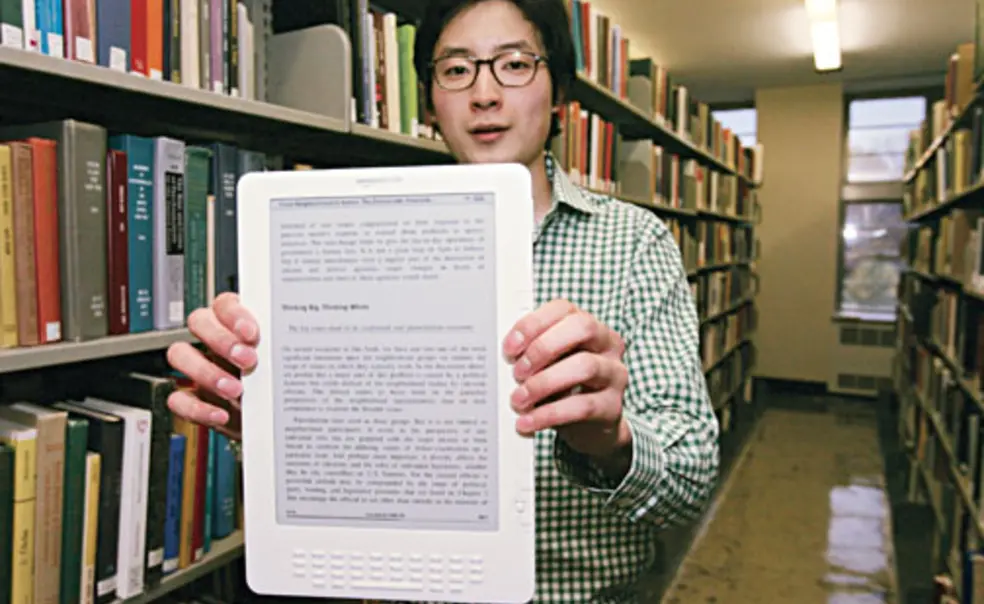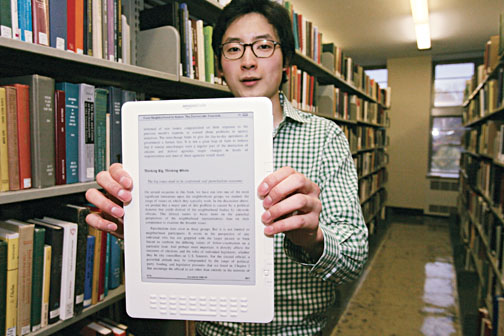Putting the Kindle to the test
Over the summer, I received an unexpected e-mail from the University about my upcoming “Civil Society” seminar with Professor Stanley Katz.
Would I like to receive a $489 Kindle DX e-reader at no cost — and keep it after the course ends? Would I like to have my course books downloaded onto the device for free? It was like Christmas in July.
My class, along with two others at Princeton, was chosen as part of a pilot program to gauge whether e-readers could be used to save paper without compromising the academic experience. Princeton students printed more than 10 million sheets of paper last year, mostly because more and more courses are putting readings on e-reserves. Could the Kindle be an appropriate pedagogical substitute for the traditional reams of paper? So far, my classmates, my professor, and I have found that it is not.
Reading on the Amazon Kindle is easy and enjoyable. Books are downloaded seamlessly onto your device, and the 9.7-inch screen mimics ink so that you’re not staring at a computer screen. You can control the text size, and if you’re feeling lonely, a robotic male or female voice can read aloud to you.
The Kindle is a great way to do your leisure reading. But in class, we’re usually in a frenzy — underlining with abandon, dog-earing left and right, and bemoaning the book’s length while nervously flipping through its pages. We crawl into bed with our books, fall asleep, and then drool on the pages. Try this with the Kindle, and you might get a shock.
My classmates and I have found the Kindle’s biggest drawback to be the difficulty of annotating. Instead of scrawling in the margins, you must create a note on the Kindle and type in your thoughts using a small keyboard. Not only does it take much longer, but it’s hard to find your notes later on. The Kindle also can be frustratingly slow, lagging when you’re turning the page.
Class discussion gets complicated as well. The Kindle has no page numbers, but locations. During the seminar, Professor Katz usually has to say something like, “Please go to location 2783.” Students then have to go through several steps to find the location in question. “So far I would say the pedagogical disadvantages are greater than the advantages,” Professor Katz told me.
The Kindle does have its advantages. “It’s much easier for organization,” said Lizzie Presser ’10, whose classics seminar is using the Kindle. Kathleen Wade ’11, one of my classmates, told me, “The main convenience is that it’s a lot of books in a very small space.”
Many in the pilot program said they are reserving final judgment. “I’m trying to give the Kindle a try. I don’t regret it yet,” Presser said.
For now, we’re enjoying our quasi-celebrity status as bearers of the Kindle. “People ask [about it] all the time,” said Jess Lanney ’10, another classmate. “Most of them are jealous, and then they want to know how it works.”
If only they knew.













No responses yet